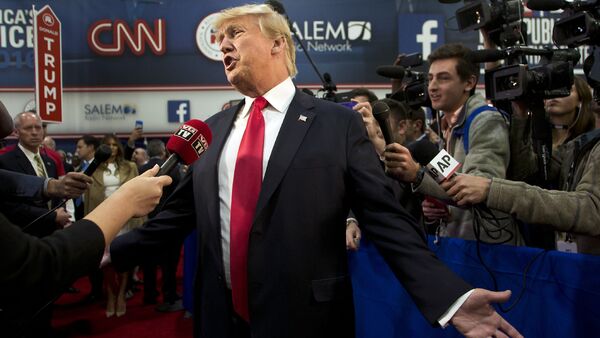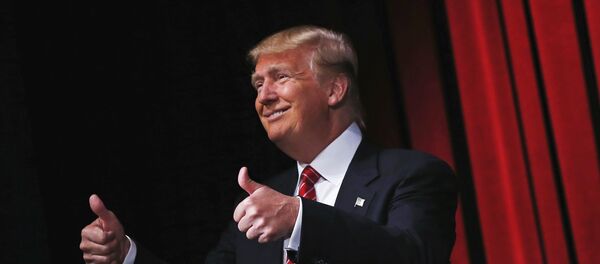"I think this, so far, is an outsider’s election and that speaks to the mood of the American public," George Washington University Political Management Professor Christopher Arterton said.
However, Arterton added that it was another question whether Sanders and Trump would be able to sustain such support as the campaign progresses into the larger and more demographically diverse primary states.
At some point during the primary election process, Arterton argues, voters will feel satisfied that the protest message has been sent and will begin to look at more realistic candidates for the presidency.
Arterton explained that he was a delegate to the Democratic national conventions during the early 1970s for George McGovern, who was an anti-establishment candidate during an unpopular war, drawing parallels to Sanders’ campaign.
"We were in the middle of the Vietnam War at that point and I was very surprised at the size of his [McGovern’s] defeat," he noted. "A 74-year old Democratic socialist has a great appeal in the Democratic Party as a statement of values and goals, but were he [Sanders] to be the [Democratic Party’s] presidential nominee the defeat would be as resounding as it was [for McGovern] in 1972."
The Strategy Group’s Bill Fuhry, a veteran political consultant, told Sputnik that both Sanders and Trump appealed to New Hampshire’s independent-minded voters and tapped into an anti-Washington undercurrent.
"Trump is the quintessential outsider in this race. He is the one guy who does not have a spot in Washington," Fuhry noted, adding that Trump did not speak "the guarded language of a typical US Senator or political type."
The political consultant also pointed out that Sanders was also considered to be an outsider in the minds of the New Hampshire electorate relative to his opponent, former Secretary of State Hillary Clinton.
Fuhry added that Sanders would be hard-pressed to identify with voters in larger primary states, especially among African Americans, where Clinton may have an advantage as a known commodity.
"They will not identify as well with a 74-year old socialist with a thick New York accent," Fuhry claimed. "They know Hillary Clinton and they are going to feel more strongly toward her."
On Tuesday, with 70 percent of New Hampshire precincts reporting, Sanders had won 60 percent of the vote while Clinton garnered 38 percent in the Democratic presidential primary.
In the Republican race, with 70 percent of precincts reporting, Trump had won 35 percent of the vote followed by Ohio Governor John Kasich with 16 percent, and Senator Ted Cruz and former Florida Governor Jeb Bush with 11 percent each.



